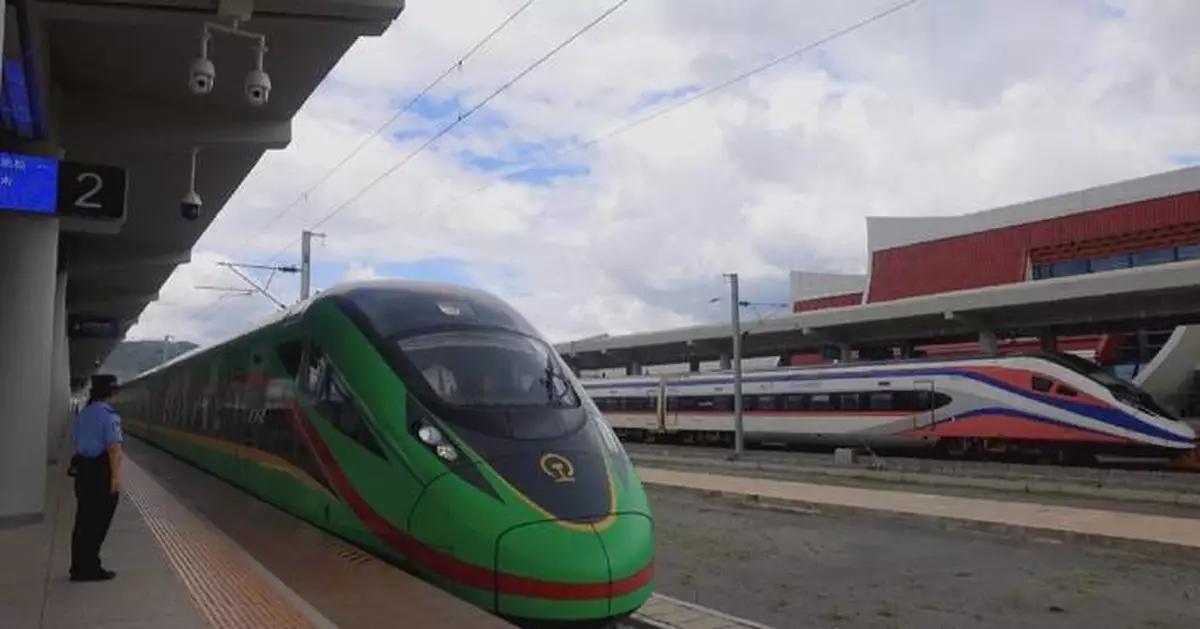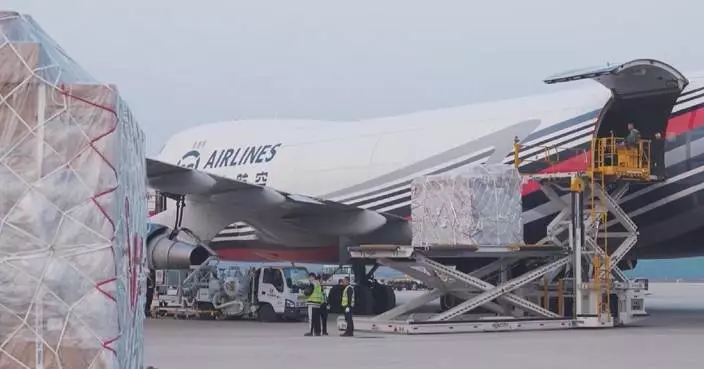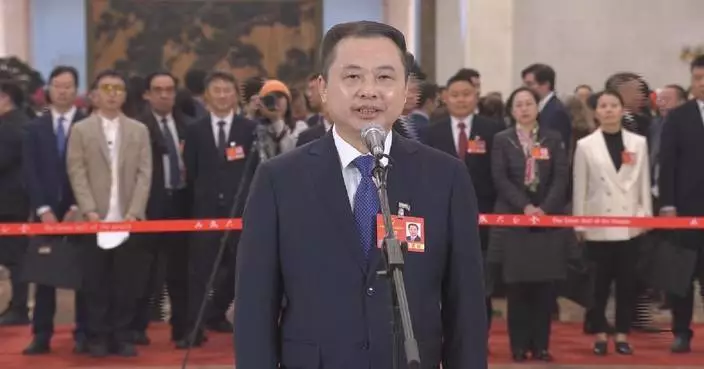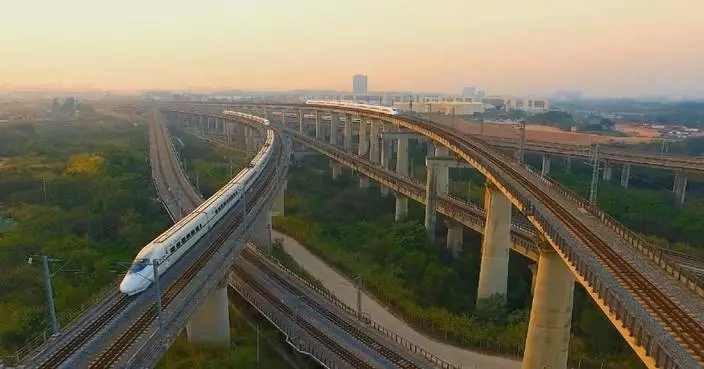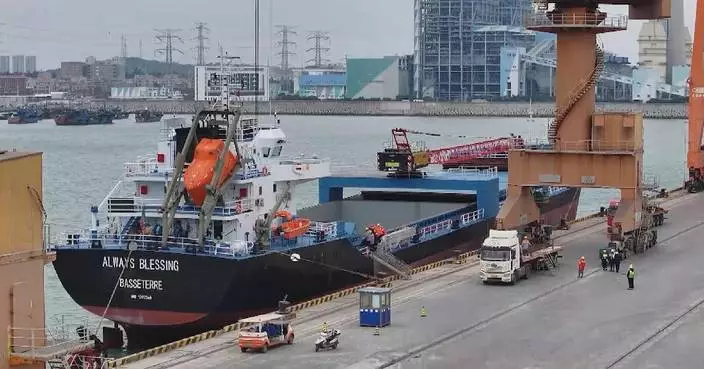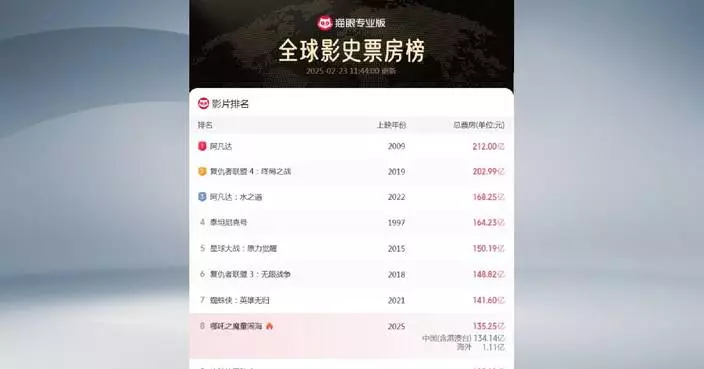The China-Laos Railway has facilitated travel and the movement of goods along its route over the past three years.
The 1,035-kilometer railway, a flagship project within the framework of the China-proposed Belt and Road Initiative, connects China's southwestern city of Kunming with the Laotian capital of Vientiane.
Starting operation on Dec 3, 2021, it links the new western land-sea corridor and the China-Europe international railway network, extending its cross-border cargo transportation services to 19 countries and regions, including Laos, Thailand, and Vietnam.
Over the past three years, the railway has transported more than 43 million passengers and 48 million tons of cargo, marking a surge of both passenger and cargo transport.
Feng Zhuoliang, a banana trader from Chengdu, capital of southwest China's Sichuan Province, has benefited from the railway. His company buys approximately 1,000 tons of bananas each month from Mohan, a border town in Yunnan Province.
"I arrived yesterday afternoon. Since then, I've ordered two trucks of goods. My plan today is to purchase around three trucks more," said Feng.
Compared with the road transport, the China-Laos Railway can reduce transportation by three to four days, and lower losses caused from the handling of goods during border transits, Feng said.
The China-Laos Railway has also cut freight costs by 30 percent to 50 percent for shipment between Kunming and Thailand, and by 20 percent to 40 percent for transport within Laos.
In the last three years, the railway served 31 provinces, regions, and municipalities in China and 19 other countries and regions, including Laos, Thailand, Vietnam, and Singapore.
In terms of the passenger transport, the daily trains on the China-Laos Railway's domestic section have risen from eight to a peak of 86, and on the international section from four to 16. Monthly passenger numbers have grown from over 600,000 to more than 1.6 million.
"The railway has significantly facilitated the travel for people along the route. We have added extra trains during weekends and holidays," said Dai Rui, a conductor of the Kunming Passenger Transport Section of China Railway Kunming Group.
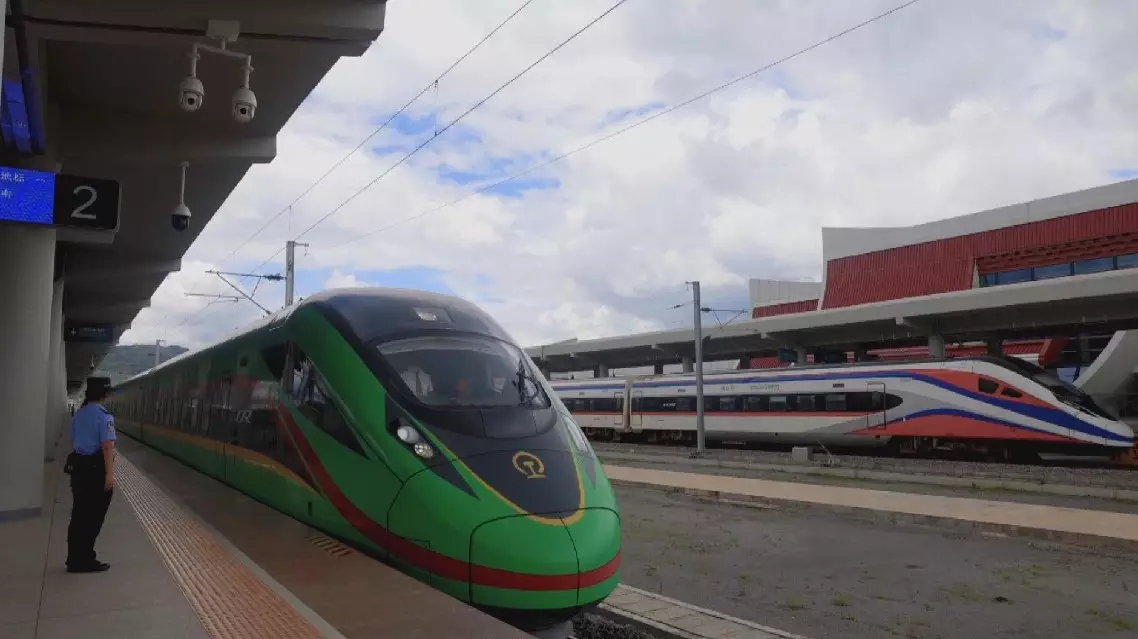
China-Laos Railway enhances cross-border trade, travel
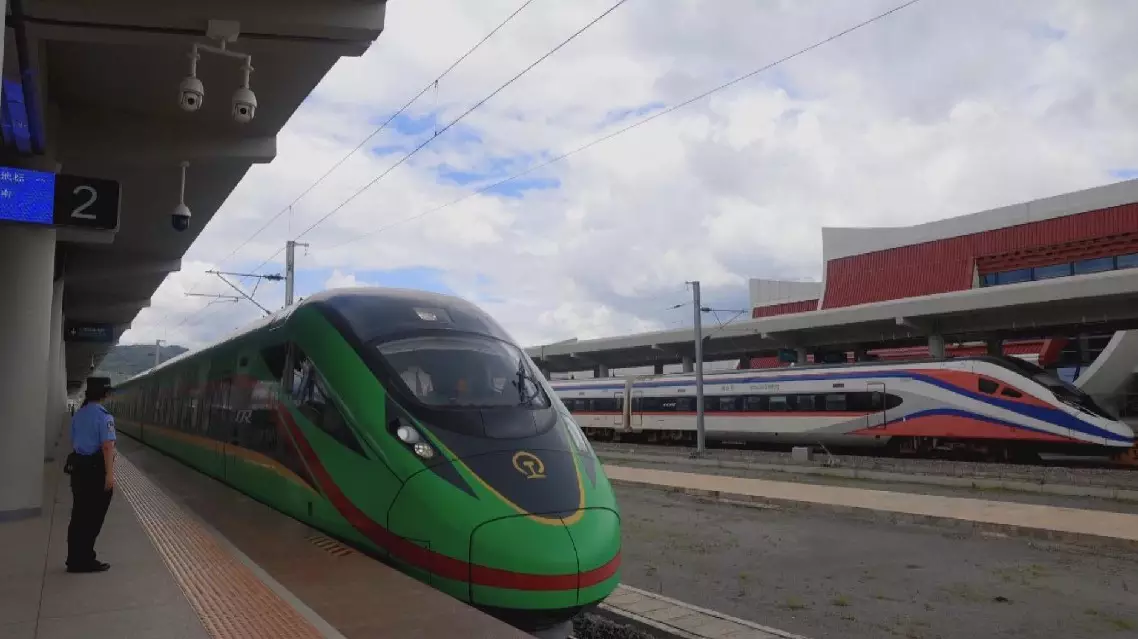
China-Laos Railway enhances cross-border trade, travel
Millions of Syrians displaced to neighboring countries by the country's civil war now face a dilemma: whether to return to their war-devastated homeland to start from square one or continue to stay in the countries where they have already built a new life.
Since the outbreak of the Syrian civil war in 2011, millions of Syrians have been forced to seek refuge in Türkiye, Iraq and other neighboring countries.
Türkiye is home to approximately 3.5 million registered Syrian refugees, according to official statistics.
Six of the 11 border crossings between Türkiye and Syria are currently open, and the Cilvegozu border crossing in Hatay is the largest of them.
The crossing is currently open around the clock, with online same-day appointment travel permits available, and additional support provided by volunteers, including language translation and baggage handling services.
"My name is Mohammed al-Sabah. I'm from Aleppo and I have been living in Türkiye for 10 years. My house in Syria was destroyed in an air strike many years ago, but I had to go back to Syria to rebuild our country," said a 62-year-old Syrian refugee.
Syria has been devastated by years of war, and for many Syrian refugees, Türkiye's encouragement policy is not enough to dispel their practical concerns, and it is still a problem for them to decide whether to return or to stay.
For many Syrian families who have spent years in Türkiye, roots have been firmly established.
Abdulkadir Al-Hasan, a 35-year-old Syrian refugee, has established a new life in Türkiye, where he is able to support his family through his skills as a heavy machinery operator, including driving excavators and harvesters.
"We used to live in Hama in Syria but the whole city was destroyed. My brother went back last week, only to find that there was no water, no electricity, and no job. It is impossible to live there," said Hasan.
Torn between the life he has built in Türkiye and the pull of his homeland, Hasan finds himself in a difficult position.
"The schools back home have not been restored, so for the sake of our children's education, we have to stay. I will consider going back if order is restored in Syria and the country is on its feet again, but now there is only a title for the government, but nothing else," Hasan said.
The United Nations High Commissioner for Refugees (UNHCR) also warned of the challenges facing the returnees.
"There is this humanitarian crisis ongoing inside Syria, some still say the security situation is still fragile in many parts of Syria," said Selin Unal, spokesperson of the UNHCR in Türkiye.
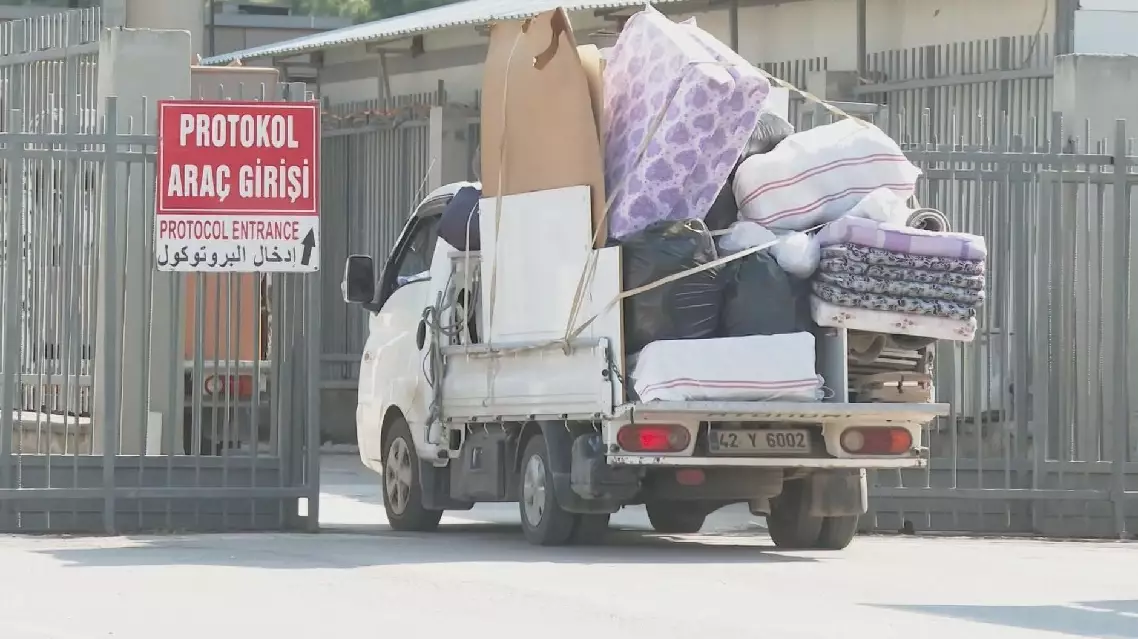
Displaced Syrians caught in dilemma of returning or staying




